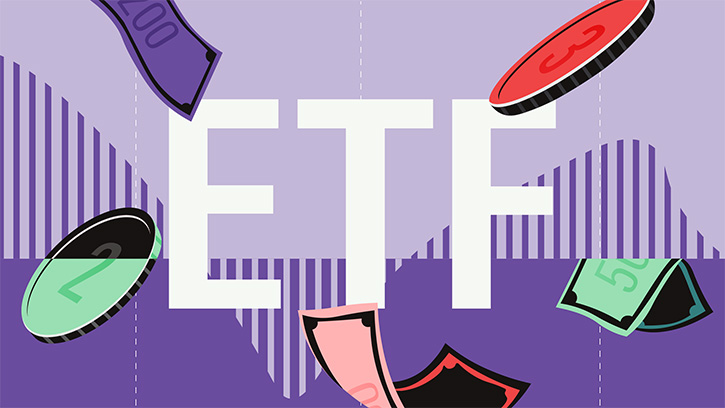If it seems like there are more funds clamouring for your attention these days, you're not imagining things. Not only has the number of funds expanded by the thousands during the past decade, but numerous exchange-traded and closed-end funds, many of them with very specialized and exotic mandates, have also popped onto the scene.
However, it's not just the number of funds that might cause confusion. More and more, investors have been hearing that in order to be properly diversified, they need exposure to more asset classes than they previously had assumed. Instead of just stocks, bonds, and cash, many responsible financial writers and advisors--not to mention fund companies trying to pitch their latest wares--now suggest that a portfolio should also include some real estate and perhaps exposure to commodities. And of course, as in the past, you're still told to include smaller companies, international companies, some emerging markets, some domestic--and both growth and value.
Some investors have responded by owning more and more funds. But the result can be a sprawling, unmanageable portfolio of 20 or 30 funds or more. Others, especially in retirement plans, take the opposite course: They toss up their hands and own just one fund or similar option that provides diversification all on its own.
As my colleague Christine Benz has explained in the past, owning just a single "all-in-one" fund can work. But not all such offerings are top notch.
The good news is that you still can own just a few funds and not feel guilty that you are violating the iron law of diversification. The key is to understand that there are two ways to think of diversification.
To Meet Your Goals, or to Win?
Perhaps it's more accurate to say there are two different reasons most investors diversify. The more traditional one is to make sure if losses hit one type of investment that you'll have others that are rising or at least maintaining their value. The second reason for diversification seems to be newer: if you don't own everything, you'll probably miss out on the top-performing sector of the next year or decade.
It is the latter approach that induces people to overload. You may own a good international fund, but you've heard you could miss out on a chart-topping group if you don't also own an international small-cap fund and an emerging-markets fund, not to mention a fund aimed at certain popular markets such as China or India. If you don't have a fund or ETF focused on gold, you might similarly miss out if the shiny metal repeats its dominance of the past decade. That logic could then lead you to buy more funds that invest in other metals or other commodities. A great many such offerings are now available in mutual fund or ETF formats. Who knows which one will crush the competition?
It's true that niche areas can put up spectacular returns, sometimes over extended periods of time. But the purpose of long-term investing is to meet your own goals and provide some psychological comfort during rough spells. The goal is not necessarily to ensure that you get the highest return possible or to top the performance of your neighbor or brother-in-law. The traditional kind of diversification is a conservative measure. The second kind is an aggressive attempt to win a contest.
What Diversification Means in Practice
To be clear, sticking with the old-fashioned kind of diversification doesn't mean you must abandon the idea of owning emerging markets or gold or that you can't take advantage of new kinds of vehicles. And you can do so while owning just a limited number of funds that you've selected for the right reasons. Here are some examples:
Many good international funds that focus mainly on large caps are wide-ranging in other ways, providing an amount of diversification. Artemis Global Growth Fund, which focuses on investing in global large-cap companies, still has 26% of the portfolio invested in companies that are listed on emerging market exchanges. Morningstar analyst Oliver Kettlewell explains that this fund has been using the same investment process for over 10 years, and despite under-performance in 2008, the fund has performed strongly since 2010. This recent strong performance has led Morningstar to give the fund a Silver rating, indicating that analysts believe the fund will outperform its peer group and/or relevant benchmark on a risk-adjusted basis over the long term. (Premium users have exclusive access to Kettlewell's full research report.)
Vanguard Total International Stock Index ETF (VXUS) also has a large part of its portfolio invested in emerging markets. And after recently changing its benchmark, it owns more small-cap companies than it used to. (However, investors should be aware of the tax implications for owning US-based ETFs if they are interested in buying this particular ETF.)
Schroder ISF Global Smaller Companies Fund also offers investors a highly diversified option. As its name implies, it invests in smaller global companies, and it has also been expanding into mid-cap investing as well, said Kettlewell.
Finally, the Silver-rated Blackrock Global Small-Cap Fund is the highest rated global small-cap fund available, which has at least 70% of its portfolio invested in smaller companies around the world.
Meanwhile, if you've studied the issue and have decided you agree with those who say commodities are legitimately a separate asset class that may hold up well when some of your other holdings are tanking, there's nothing wrong with buying a mutual fund or an ETF devoted to them (as long as you've checked the fund out closely, of course). Conversely, though, it could be self-defeating to buy many different ETFs devoted to various specific commodities not for their potential defensive traits but because you worry that one of them is going to double or triple over the next year or two and you don't want to miss out on the jackpot.
In short, investing for long-term goals is not the same as hoping to win the lottery. A reasonable amount of diversification, with a reasonable amount of carefully chosen funds, can still do the job over time. You won't win any contests. But you'll have a good chance of reaching your goals without too much fuss or worry.
A version of this article originally appeared on our sister site, Morningstar.com.























